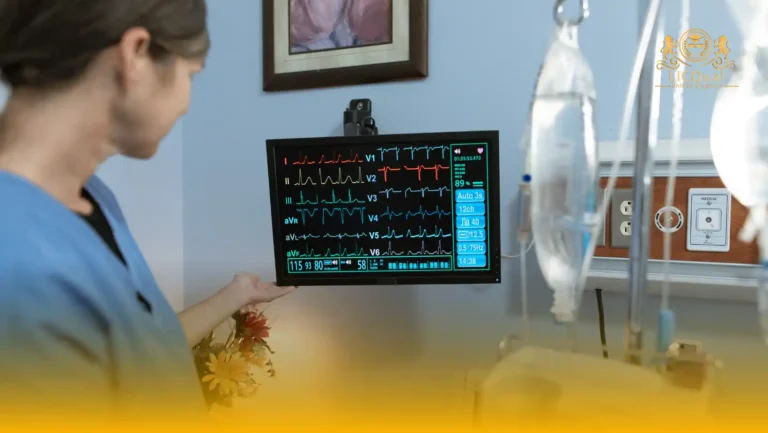Conflict in the workplace is inevitable. Whether it involves colleagues, customers, or management, unresolved conflicts can have a negative impact on productivity, morale, and the overall work environment. In non-clinical settings, where employees often face different stressors and interpersonal dynamics, effective conflict resolution is crucial for maintaining a harmonious atmosphere. The LICQual Certificate in Non-Clinical Conflict Resolution Train the Trainer equips professionals with the necessary skills to train others on how to manage and resolve conflict effectively, ensuring a more positive and productive work environment.
The LICQual Certificate in Non-Clinical Conflict Resolution Train the Trainer is a comprehensive training qualification that aims to develop the skills and knowledge of individuals who wish to deliver conflict resolution training within non-clinical environments. It prepares participants to act as trainers, teaching employees at all levels how to manage disputes, de-escalate tensions, and foster positive relationships at work.
Conflict can arise in any work environment, and non-clinical settings, such as offices, customer service teams, retail environments, and manufacturing plants, are no exception. Whether it is a disagreement between employees, a misunderstanding with customers, or a clash of ideas, unmanaged conflict can lead to stress, decreased productivity, and a toxic atmosphere. In these settings, it is essential that conflict is resolved quickly and effectively to ensure that work continues smoothly and that employees feel supported and valued.
The LICQual Certificate in Non-Clinical Conflict Resolution Train the Trainer is an invaluable qualification for professionals looking to enhance their ability to manage and resolve conflict in the workplace. This course provides trainers with the tools they need to deliver high-quality training that promotes effective conflict resolution, leading to a more productive, positive, and respectful work environment. By investing in conflict resolution training, organisations can reduce tensions, improve communication, and foster a workplace culture where conflicts are resolved constructively and efficiently.
Course Overview
Qualification Title
LICQual Certificate in Non-Clinical Conflict Resolution Train the Trainer
Total Units
6
Total Credits
18
GLH
72
Qualification #
LICQ2200149
Qualification Specification
To enrol in the “LICQual Certificate in Non-Clinical Conflict Resolution Train the Trainer” course, participants must meet the following requirements
- A basic understanding of conflict management concepts is recommended, but not mandatory.
- Good communication and presentation skills.
- A genuine interest in training and resolving conflicts in non-clinical settings.
|
Qualification# |
Unit Title |
Credits |
GLH |
|---|---|---|---|
|
LICQ2200149-1 |
Introduction to Conflict Resolution |
3 |
12 |
|
LICQ2200149-2 |
Causes and Types of Conflicts in Non-Clinical Settings |
3 |
12 |
|
LICQ2200149-3 |
Effective Communication for Conflict Resolution |
3 |
12 |
|
LICQ2200149-4 |
Negotiation and Mediation Techniques |
3 |
12 |
|
LICQ2200149-5 LICQ2200149-6 |
Designing Engaging Conflict Resolution Training Conflict Prevention and Workplace Culture |
3 3 |
12 12 |
By the end of this course, learners will be able to:
1. Introduction to Conflict Resolution
- Understand the basic principles and importance of conflict resolution in non-clinical settings.
- Recognise the different types of conflict that can occur in the workplace.
- Learn the impact of unresolved conflict on individuals, teams, and organisations.
- Understand the role of a conflict resolution trainer and their responsibility in fostering a positive environment.
2. Causes and Types of Conflicts in Non-Clinical Settings
- Identify common causes of conflict in non-clinical environments, such as communication breakdowns, personality clashes, and resource allocation.
- Understand the different types of conflict, including interpersonal, intragroup, and intergroup conflicts.
- Analyse the factors that contribute to conflict escalation and how to prevent them.
- Develop strategies to address conflicts in non-clinical settings before they become disruptive.
3. Effective Communication for Conflict Resolution
- Understand the role of communication in conflict resolution.
- Learn active listening skills and their importance in conflict resolution.
- Develop the ability to express thoughts and concerns clearly and respectfully.
- Understand non-verbal communication and how it can impact conflict resolution.
- Improve the ability to adapt communication styles to different conflict situations.
4. Negotiation and Mediation Techniques
- Understand the key principles of negotiation and mediation as tools for conflict resolution.
- Learn how to apply negotiation techniques to reach mutually beneficial solutions.
- Understand the steps involved in mediation and how to facilitate a mediation session.
- Develop the skills necessary to balance power dynamics and ensure fairness during mediation.
- Learn how to guide parties towards finding common ground and resolving conflicts constructively.
5. Designing Engaging Conflict Resolution Training
- Understand the principles of effective training design, particularly for conflict resolution.
- Learn how to create clear learning objectives and tailor content to meet the needs of different audiences.
- Develop engaging training materials and activities that enhance conflict resolution skills.
- Use various teaching methods, including role-plays, case studies, and simulations, to engage learners.
- Learn how to evaluate and adjust training to improve participant learning and engagement.
6. Conflict Prevention and Workplace Culture
- Understand the importance of creating a workplace culture that promotes collaboration and reduces conflict.
- Learn strategies to prevent conflict through clear communication, setting expectations, and fostering respect.
- Identify proactive measures for maintaining positive relationships within teams and across the organisation.
- Develop conflict prevention policies and practices that align with the organisation’s goals and values.
- Learn how to address and manage potential conflict before it disrupts the workplace environment.
This diploma is ideal for:
- Human Resources Professionals
- Managers and Team Leaders
- Corporate Trainers and Learning & Development Specialists
- Consultants and Coaches
- Anyone interested in becoming a conflict resolution trainer in non-clinical settings.
Assessment and Verification
All units within this qualification are subject to internal assessment by the approved centre and external verification by LICQual. The qualification follows a criterion-referenced assessment approach, ensuring that learners meet all specified learning outcomes.
To achieve a ‘Pass’ in any unit, learners must provide valid, sufficient, and authentic evidence demonstrating their attainment of all learning outcomes and compliance with the prescribed assessment criteria. The Assessor is responsible for evaluating the evidence and determining whether the learner has successfully met the required standards.
Assessors must maintain a clear and comprehensive audit trail, documenting the basis for their assessment decisions to ensure transparency, consistency, and compliance with quality assurance requirements.







